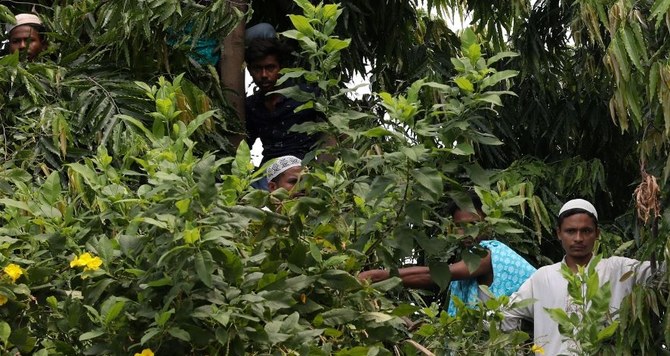
If anyone doubted the potential dangers around religious incitement, they need look only to India’s unnecessary and increasingly perilous crisis taking place right now.
Late last month, Nupur Sharma, national spokesperson for the ruling Bharatiya Janata Party, offended Muslims and advocates of tolerance and communal harmony the world over by deliberately insulting Islam and Prophet Muhammad. The official response was slow and angry protests erupted. Now, extremists are trying to exploit the situation with calls for violence.
Let us get one thing clear: Sharma’s remarks were entirely unacceptable and wantonly irresponsible for someone with an official government position. They have no place in the public discourse of any country. This principle applies to the holy texts and anointed leaders of any of our faiths.
Such insults do nothing to educate, unite or bring solace to a world that already experiences too much tension and death because of ethnic, religious and nationalist misunderstandings and ignorance. Everyone in a position of authority bears a sacred duty to lead responsibly.
I commend the BJP and Indian government for its appropriate suspension of Sharma and fellow party member Naveen Kumar Jindal. But they dithered for too long and acted only after the domestic and international outcry.
This was not the first such incident in India — a place where anti-Muslim rhetoric has grown increasingly banal and even accepted in recent years. Just a few years ago, Tejasvi Surya, a BJP parliamentarian, wrote offensively about Arab women. The resulting firestorm was apparently insufficient to stop such provocations.
The BJP must take a firm and uncompromising stand that it will not accept the scapegoating of a minority group. It must take proactive measures to foster tolerance and understanding and shun or expel those who seek to divide Indians.
The world is watching and, as the most populous democracy, India bears an added weight to lead by example. In its recently released annual Report on International Religious Freedom, the US State Department emphasized that Indian government officials are “ignoring or even supporting attacks on people or places of worship.”
As a rabbi with family members who survived the Holocaust, I know how hard it is to stop the scapegoating once it begins. India can reverse course and make tolerance and the embrace of its minority Muslim population a central element of its national platform.
But it must move hastily. If the BJP judges that the more prudent election strategy is to incite its base by castigating Islam, it will be a doing a disservice to all Indians. And it will risk pushing more Muslims into the ranks of the disaffected, making them prey to the rhetoric and instigation of extremist groups.
Muslim governments, including Saudi Arabia, are justified in denouncing such offenses. It is noteworthy how they are trying to decrease tensions and motivate a more responsible course from Indian leaders. As the 57-nation Organization of Islamic Cooperation declared in a statement, the remarks occurred in the context of the growing harassment of Muslims in India. These are not idle words.
India should engage its Muslim neighbors, but most of all listen to the sensitivities and concerns of its own Muslim citizenry, which totals more than 170 million people. They are reasonable and want a better India for everyone.
The more Indian leaders ignore such entreaties, the more they advance the recruitment initiatives of common threats to all, like Al-Qaeda in the Indian Subcontinent. The terror group has issued threats to carry out suicide bombings to “defend the honor” of the Prophet, although we know it is merely instrumentalizing the crisis to further its own warped agenda. And death threats in the opposite direction have come from Hindu extremist organizations.
“The BJP must take a firm and uncompromising stand that it will not accept the scapegoating of a minority group.”
Rabbi Marc Schneier
Reason must prevail and dialogue is surely the only path forward. Now is the time for India’s government to lead and do everything it can to tamp down sectarian and religious-based tension.
Prime Minister Narendra Modi has been silent. Presumably, he is torn between elements of his national base and maintaining good relations with key economic partners in the Gulf and elsewhere. The choice is easy: He should side with tolerance and understanding.
And Modi’s whole party should spearhead a systematic review of rhetoric and policies that are hurtful to one group or another. Instead of a communications crisis response, the BJP should look for a lasting and permanent improvement of its interfaith leadership.
Muslims, and India as a whole, deserve no less.
Rabbi Marc Schneier is president of the Foundation for Ethnic Understanding.
Copyright © 2025 Foundation For Ethnic Understanding. All rights reserved. | Privacy Policy